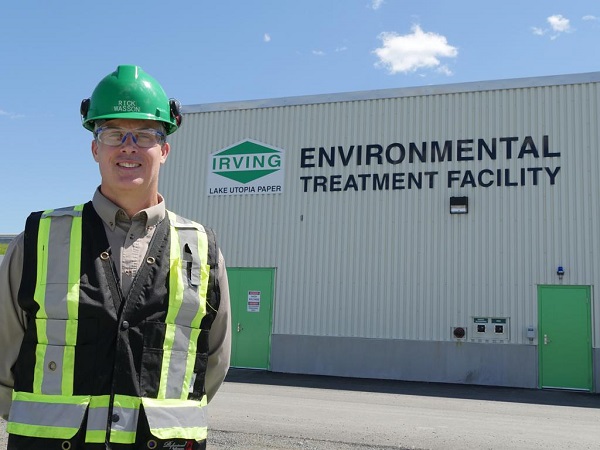Happy Earth Day!
Earth Day is April 22, 2019, and to celebrate, we are sharing some environmental highlights from our businesses. Air, land, and water are areas where the JDI team works every day to reduce our environmental footprint. Below are some of the efforts and results:
- Since 1990, our Pulp and Paper operations have reduced their carbon footprint by 55%. This puts us amongst top performers in North America and exceeds the target set by the Government of Canada and the Paris Climate Change Accord.
- Today renewable green energy sources account for 59% of the fuel used at our pulp, paper, and tissue mills as well as our sawmills.
- A recent $30 million investment at Lake Utopia Paper near St. George, N.B. earned the team the 2019 Industry Excellence Award from Natural Resources magazine. Natural Resources magazine’s 2019 Industry Excellence Award in Environmental Stewardship. The new environmental treatment facility turns organic waste into clean-burning biogas. This green energy replaces the use of fossil fuels, reducing greenhouse gas emissions by 25%. Check out the video here:
- This year we will plant over 16 million trees – Nature’s air filters. Over the next 50 years growing trees on the lands we manage will absorb over 92 million tonnes of carbon dioxide. That’s equal to 350,000 cars off the road each year for the next 50 years.
- NBM Railways have achieved a 31.4% improvement in fuel efficiency (2015-2018) – reducing fossil fuel consumption by over 13 million liters.

read more/source: https://www.jdirving.com/Happy-Earth-Day.aspx